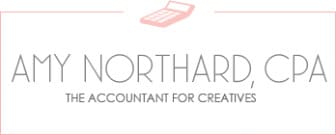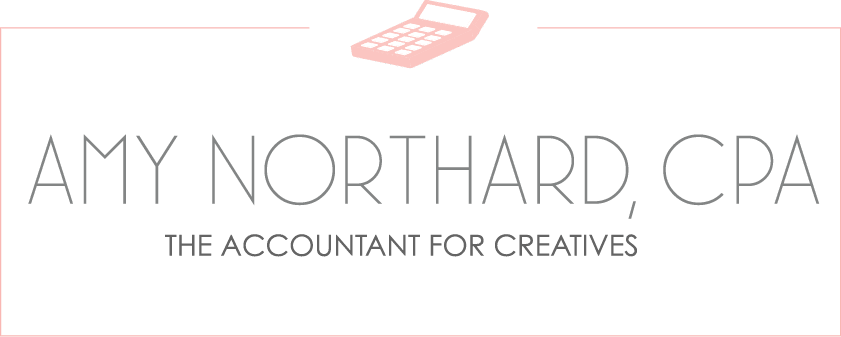If you have income from rental property, then today’s post is for you!
I’m breaking down everything you need to know about the Section 199A rental property deduction, including how you can use it to save big on taxes.
What is the Section 199A deduction?
When the Tax Cuts and Job Acts (TCJA) was passed in 2017, it created the Section 199A deduction, which is also known as the Qualified Business Income (QBI) deduction. This deduction allows eligible taxpayers to deduct up to 20% of their QBI from a pass-through entity like an S-Corporation or limited liability company (LLC).
What types of businesses are considered pass-through entities?
Pass-through entities are businesses that do not pay income tax for themselves. Instead, the income, losses, deductions, and credits from the business are passed through to the business owner’s personal tax return. The profits are taxed on the owner’s return at their personal income tax rate.
A pass-through entity can be any of the following:
- Sole proprietorship
- Partnership
- Limited liability company (LLC)
- S-Corporation
C-Corporations and LLCs that elect to be taxed as corporations are not pass-through entities. Real estate investment trusts (REITs) and publicly traded partnerships are generally excluded as well.
What do I have to do to claim the 20% deduction on my rental property income?
There are some rules and requirements you need to be aware of if you plan to claim the Section 199A deduction for your rental property income. To begin, you’ll need to meet certain eligibility requirements:
- Pass-Through Entity: As we’ve discussed, the rental income must be generated from a pass-through entity.
- Qualified Business Income (QBI): Your rental activity must be considered a trade or business. Simply owning a rental property without being actively involved in the business side of it may not meet this requirement. We’ll talk more about this in a minute.
- Taxable Income Limits: If your income is above certain limits set by the IRS, your available deduction is reduced. For tax year 2024, the deduction starts to phase out for single filers with taxable income above $191,950 and for joint filers above $383,900. For tax year 2024, the deduction is not available for single filers with taxable income above $241,950 and for joint filers above $483,900.
What does active involvement in rental activities mean?
To qualify for the Section 199A deduction, you’ll need to demonstrate what the IRS refers to as “active involvement” in your rental activities. Simply owning a rental property and collecting passive income likely won’t meet these requirements. Instead, you’ll need to demonstrate regular, substantial, and ongoing involvement in your rental property operations.
Some examples of active involvement include:
- Making decisions regarding tenants, repairs, or improvements.
- Maintaining detailed records of income and expenses for the property.
- Hiring contractors to make repairs or improvements to the property.
- Physically making repairs or improvements to the property.
- Spending a significant amount of time on activities related to the property.
What does safe harbor for 199A rental real estate mean?
Because of confusion about whether rental property could be included in Section 199A deductions, the IRS created safe harbor rules to make it easier to qualify for the deduction.
You or your pass-through entity must meet specific requirements to obtain safe harbor status, including:
- You must maintain separate books and detailed records for income and expenses related to each rental property.
-
You must perform at least 250 hours of rental services during the tax year. In this context, rental services can include:
- Advertising to rent or lease real estate
- Creating, negotiating, and executing leases
- Verifying information on tenant applications
- Collecting rent
- Completing day-to-day operational tasks
- Purchasing materials
- Supervising workers
- Maintaining and repairing the property
-
You must maintain up-to-date records of any rental services performed for the rental property. These include services completed by you or people you’ve hired to perform the services. The records must include all of the following information:
- Number of hours for each service
- Description of each service
- Dates when service was performed
- Name of person performing service
It’s important to note here that if you use your rental property as your own home or as a vacation home for yourself or if you own a triple net lease property (property where tenants pay for all property expenses), then you likely can’t qualify for safe harbor.
Also, if you’re applying safe harbor rules to qualify for the Section 199A deduction, you’ll need to sign and attach a statement to your tax return indicating that these requirements have been met. You should work with your accountant to make sure you’ve met all the necessary conditions. An accountant can also help you include everything you need in your statement to the IRS.
If I qualify for safe harbor, do I have to issue 1099s to vendors and contractors?
No, if you qualify for safe harbor, you don’t have to issue Form 1099s.
Do I have to meet the safe harbor requirements for my rental property to be classified as a trade or business?
No, you don’t necessarily need to use the safe harbor rules to meet the trade or business requirement for a Section 199A deduction. In fact, establishing your rental property as a trade or business without the safe harbor rules might be the better route. It could certainly mean less paperwork.
You should definitely consult an accountant when determining whether you have a rental property business in the eyes of the law even without meeting the safe harbor rules.
Abridged by Amy
The Section 199A deduction for rental properties is a smart way to lower your tax bill. However, there are many complexities within the tax code that can make the deduction tough to understand.
It’s important to work with an accountant who can give you personalized advice and make sure you have met and will continue to meet the IRS requirements for this deduction. By understanding the eligibility criteria, actively participating in managing your rental property, and having a strategic tax plan in place, you can maximize the Section 199A deduction and keep more money in your pocket.
If you found this article helpful, you may want to give these a read:

